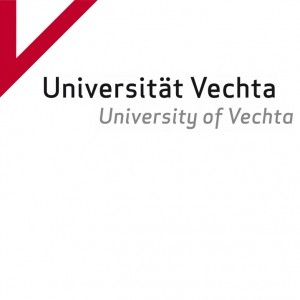Photos of university
The MSc in Global Health Geographies at Queen Mary University of London offers an interdisciplinary and comprehensive academic program designed to provide students with an in-depth understanding of the complex spatial dimensions of global health issues. This innovative programme explores the ways in which geographic factors influence health disparities, disease distribution, and healthcare access across different regions of the world. By integrating theories and methods from human geography, public health, and social sciences, students will develop critical skills necessary to analyze and address global health challenges in diverse contexts. The curriculum covers a broad range of topics including the social determinants of health, epidemiological transitions, health inequalities, and the impact of urbanization and migration on health outcomes. Students are encouraged to engage with current research, policy debates, and practical interventions aimed at improving health equity worldwide. The programme emphasizes a global perspective, encouraging students to consider cultural, political, economic, and environmental factors that shape health experiences across different geographies. Learning is enriched through a combination of lectures, seminars, case studies, and fieldwork, allowing students to apply theoretical knowledge to real-world settings. Graduates of this programme will be equipped with the analytical tools and theoretical frameworks necessary for careers in international health organizations, governmental agencies, NGOs, research institutions, and academic careers. The MSc in Global Health Geographies strives to foster a critical understanding of the spatial dimensions of health and equips students with the practical skills required to contribute to sustainable health solutions in a globalized world.
Core modules:
- Critical Geographies of Global Health (30 credits)
- Dissertation of 15,000 words (60 credits)
- Researching Global Health and Biomedicine (30 credits)
Compulsory modules:
- Geographical Thought and Practice (30 credits)
- ONE module from: Health Inequalities and the Social Determinants of Health; Health Systems, Economics and Policy (15 credits)
- ONE module from: Advanced Social Determinants of Health; Globalisation and Health Systems; Public Health, International Law and Governance; Human Rights and Public Health; Gender, Sexuality and Health; Ecological Public Health; Anthropologies of Global Health (15 credits)
Fieldwork
The module, ‘Researching Global Health and Biomedicine’, includes the opportunity to travel to Geneva, Switzerland on fieldwork to visit institutions and meet individuals involved in the shaping of global health politics. The dissertation can include fieldwork conducted in the UK or overseas. *
Requirements
- An upper second class honours degree or higher in a relevant subject from a UK university (or an equivalent international qualification), together with two supportive references, at least one of which must be academic. Relevant work experience may also be taken into account.
- IELTS 7.0
- Degree transcripts. Please provide a transcript of your degree(s). If you have not yet completed your degree please provide a transcript of your results achieved to date.
- If your degree was from an overseas institution, you should supply a transcript of your marks for each year of your studies and a copy of your degree certificate together with a certified translation if the document is not in English. Please note that original documentation will be required before you enrol. International applicants are also advised to include high school transcripts
- Please provide the contact details of two referees, at least one reference must be from an academic referee who is in a position to comment on the standard of your academic work and suitability for postgraduate level study. Where appropriate, a second referee can provide comment on your professional experience.
- Curriculum Vitae (CV)/ Resume
- Statement of purpose. Your statement of purpose should explain why you want to study your chosen programme and how it will help your life and career. This should typically be one side of A4 paper.
Scholarships
- Global Education
- Walter Oldershaw Award
- Queen Mary Alumni Loyalty Award
The MSc Global Health Geographies at Queen Mary University of London is a multidisciplinary program that explores the complex relationships between health, space, and society on a global scale. Designed for students interested in understanding the social, economic, political, and environmental determinants of health, this course provides a comprehensive overview of how geographical factors influence health outcomes across different populations and regions. The program emphasizes theoretical frameworks and practical skills necessary to analyze health issues from a geographic perspective, including spatial analysis, health inequalities, and global health policy.
Students will engage with a diverse range of topics such as urban health, migrant health, environmental health hazards, health services accessibility, and the impact of globalization on health systems. The curriculum combines core modules with optional units, enabling students to tailor their studies according to their interests and career goals. Teaching methods include lectures, seminars, case studies, and practical GIS (Geographic Information Systems) training, fostering both theoretical understanding and applied skills.
The program prepares graduates for a variety of careers in international health organizations, government agencies, NGOs, research institutions, and policy development. Students will also gain valuable experience through research projects and fieldwork opportunities, which enhance their ability to critically analyze health issues in different geographical contexts. The interdisciplinary nature of the course attracts students from diverse backgrounds such as public health, geography, anthropology, and environmental sciences.
Queen Mary University of London provides a vibrant academic environment with access to extensive resources, including research centers focused on global health, geospatial analysis, and social sciences. The university’s location in London offers additional opportunities for networking, internships, and engagement with leading experts in the field of global health. The MSc program aims to equip students with both the theoretical knowledge and practical skills needed to address health disparities worldwide and to contribute to innovative solutions for improving health equity across different geographical and social settings.









